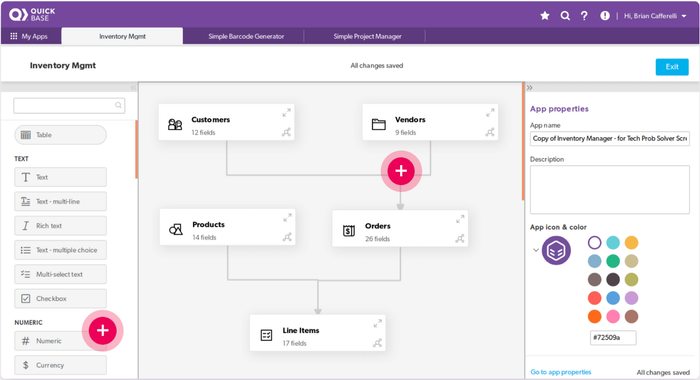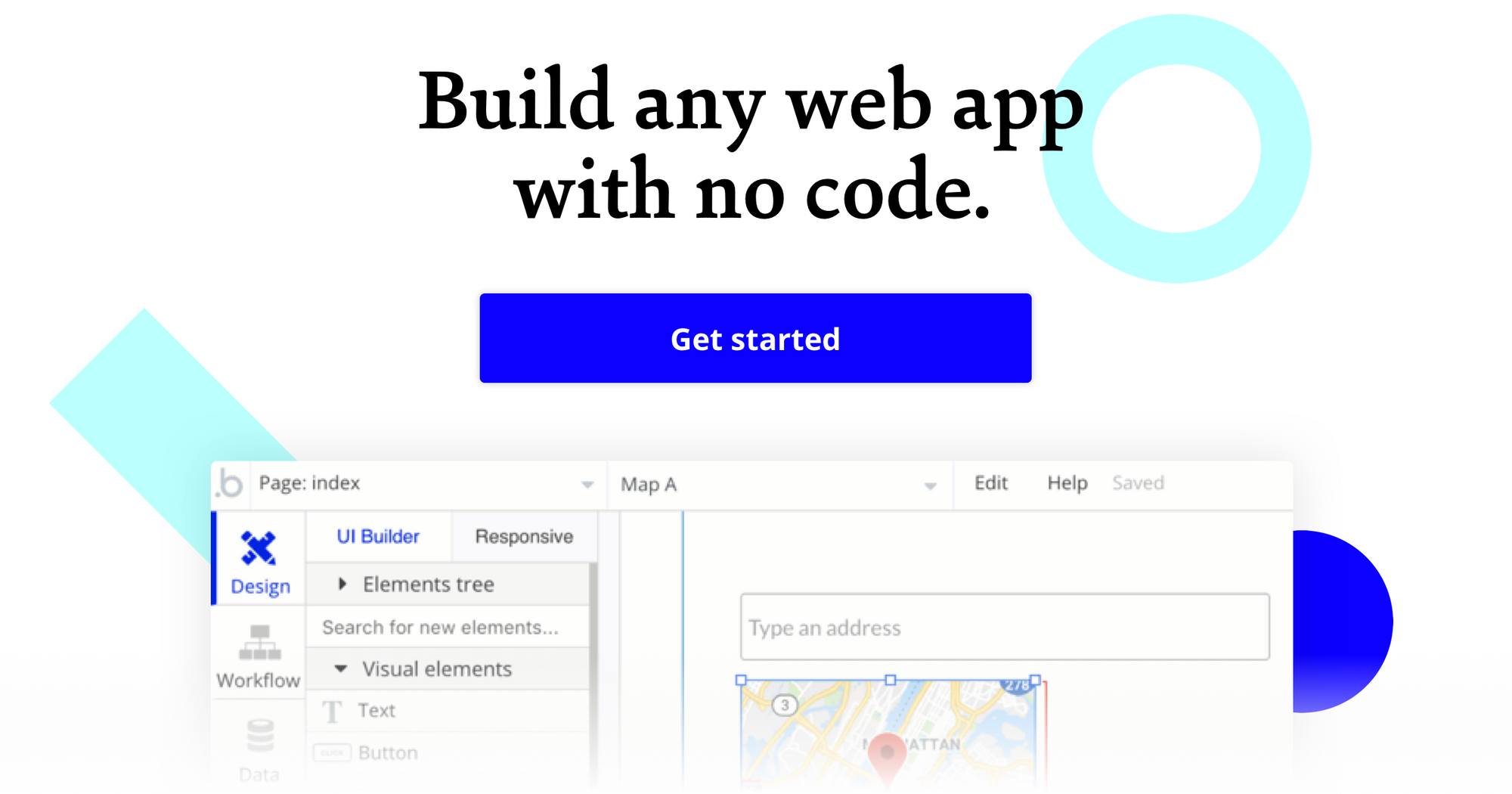At Bubble, we want to enable aspiring builders to create their ideas without code, so we are exploring and reviewing the many tools and software that IT departments and citizen developers might use to build apps.
What is Quick Base?
An enterprise-focused no-code tool, Quick Base allows developers and non-technical users to build apps for specific use cases, including CRM & sales management, customer service, human resources, and project management. Quick Base apps help automate important business processes like entering timecards and tracking issues so that your team can reduce time-to-delivery and close more deals.
With Quick Base, your team is able to build business apps on a flexible but secure platform, though the user interface is not the most visually striking. While their editor offers limited flexibility, you are welcome to customize your app’s typography by selecting fonts, colors, and text size. You can also tailor your app to meet your business’s needs by adding pre-built components such as workflows, fields, tables, reports, and dashboards.
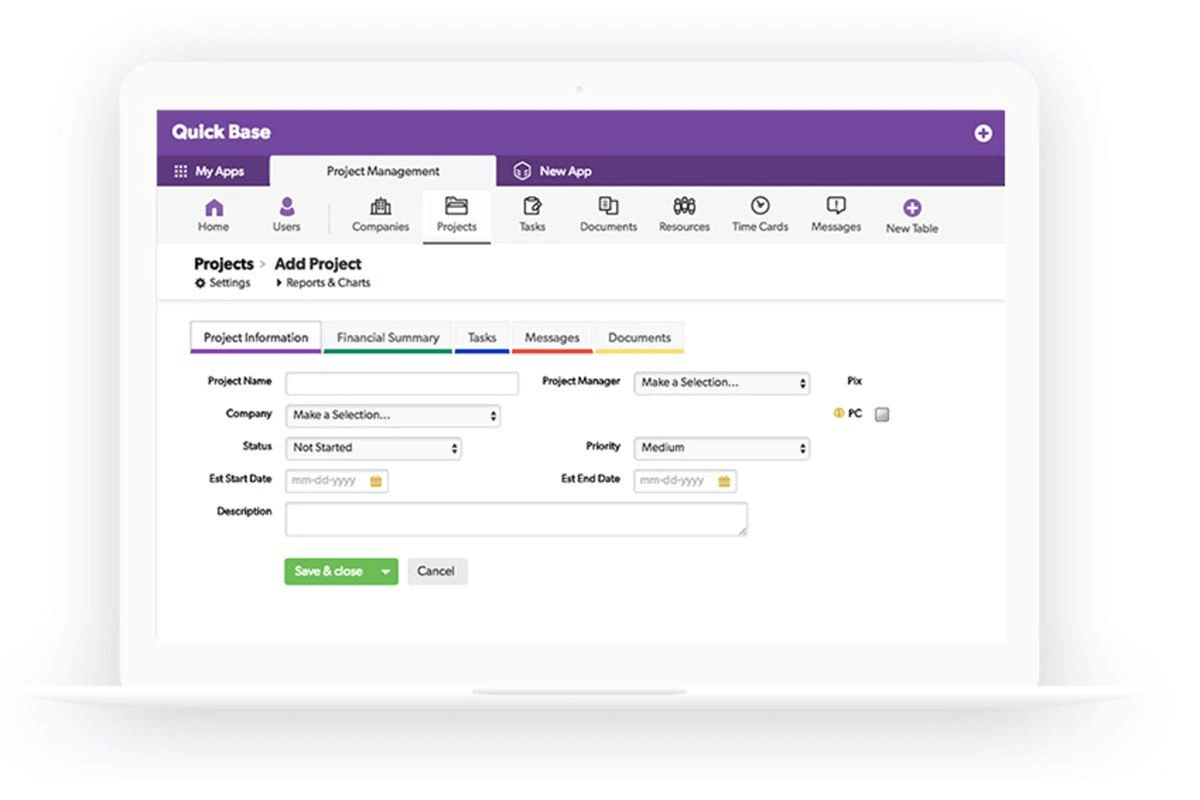
Some important Quick Base features include an app dashboard, data integration that enables you to schedule a recurring data refresh from a specific source, and a workflow automation toolkit that assists you with accomplishing things like sending reminders to the team before a meeting.
To help you become familiar with the no-code platform, you are invited to take courses at Quick Base University that cover a wide range of topics, including app planning, app building, and data integration. Their in-depth curriculum includes readings, videos, interactive exercises, quizzes, and more.
Who is Quick Base for?
Quick Base users include IT departments and citizen developers in industries such as construction, government, healthcare, legal, manufacturing, professional services, and real estate. Sprint, Southwest Airlines, and Columbia Sportswear are just a few of their well-known clients.
Growing businesses and established enterprises that are looking to expedite the development process, as well as empower their non-technical employees to build apps with unique workflows, will find Quick Base helpful for automating important business processes. Quick Base is a good option for internal use, but not the best choice for apps with end users.
Quick Base Cost and Pricing?
(Pricing model evaluation: June 2020)
Quick Base offers 3 pricing tiers: Premier, Platform, and Enterprise. Companies that pay annually receive a 16% discount on all services. They offer a free 30-day trial for the Premium plan as well.
Unlike Retool , an enterprise low-code tool with pricing that is based on the number of users, Quick Base does not put a limit on how many users an enterprise can add to the account.
All plans include unlimited case-based support, access to the Quick Base community forum, and online support documentation.
Premier: For growing teams, the Premier option costs $500 per month (billed annually), or $600/month for enterprises making monthly payments. With this plan, you are equipped with Quick Base pipelines, mobile-ready apps, and data integration. Enterprises can build up to 50 custom business apps.
Platform: This plan starts at $1,600 per month (paid annually), but costs depend on the size of your company and the number of features you would like included. This option comes with advanced security tools, integration with IAM systems, audit logs, premium support & SLA, and mobile offline capabilities. Platform subscribers are allowed to build up to 100 custom business apps.
Enterprise: Large enterprises that require a fully customizable plan can schedule a demo with the Quick Base team and receive a quote. This option comes with flexible annual and multi-year licensing options.
Quick Base vs. Bubble: A Comparison
How does the enterprise-focused model of Quick Base compare to a broader no-code platform, like Bubble?
Similarities between Quick Base and Bubble:
Both Quick Base and Bubble can help growing businesses automate important workflows.
Both have hosting integrated on their platforms for a monthly subscription price.
Both Quick Base and Bubble come with front- and back-end capabilities.
Both offer community forums where builders offer advice and ask questions.
Both provide learning resources with step-by-step instructions for building certain components.
Both no-code platforms enable you to build your app using templates.
The key differences between Quick Base and Bubble are:
Enterprises vs. Entrepreneurs: Quick Base is an enterprise-focused no-code tool that allows non-technical workers to work alongside IT teams in order to develop business apps. Bubble users include individuals, small businesses, solo entrepreneurs, startups, and enterprises large or small, and Bubble equips you with the tools to build for internal use, as well as for end users.
Free Option: Bubble offers a free plan that is aimed at amateurs and hobbyists. Free users receive access to the core Bubble platform features, community support, and “Built with Bubble!” branding. Quick Base does not offer a free plan, though enterprises can participate in a free 30-day trial to determine whether the no-code platform is a good fit for their business model.
Web Editor Design: With Quick Base’s editor, you can add pre-built components that are targeted at specific usecases, like forms, but are limited as to where you are able to position components.
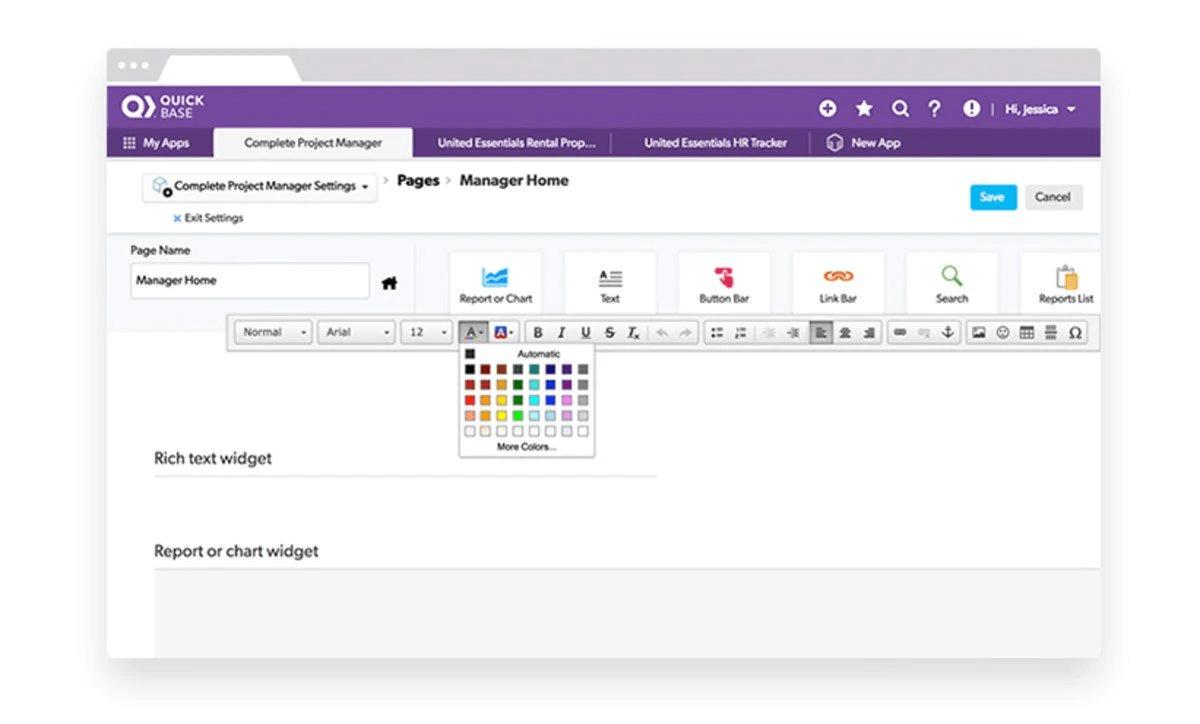
Bubble’s drag-and-drop editor allows for full freedom and pixel-perfect placement of any element; this means that you are in charge of selecting and curating styles.
Back-End Capabilities: With Quick Base, users are restricted to building apps that address specific business needs, like creating tools to enhance the customer service experience.
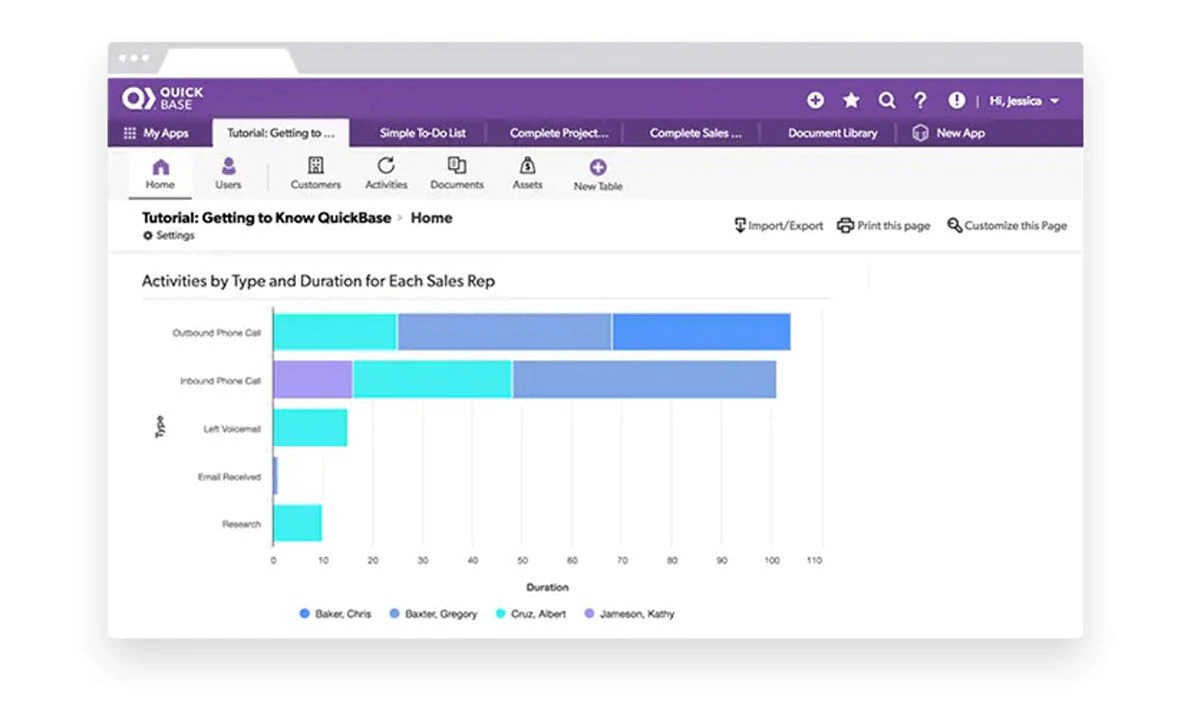
Bubble allows for a wide range of back-end events and element triggers, as well as full database functionality beyond CMS. Things like building a fully customized marketplace or a social network are possible to build in Bubble, but not in Quick Base.
Alternatives to Quick Base
Alternative no-code CMS platforms or tools that allow you to build applications without code include the following tools:
If you’re exploring options for no-code platforms with an enterprise focus, then Unqork, Betty Blocks, or Retool are possible alternatives to Quick Base.
If you require a tool with spreadsheet capabilities but don’t need to build fully functional apps, check out Coda.
If you’re looking for a platform that has support for native or mobile apps, no-code tools like Adalo, Glide, or Thunkable are good options.
If you’re launching an e-commerce site, or you only need basic landing pages and simple CMS, consider templated website hosts like Carrd, Squarespace, Wix, or Weebly as alternatives.
If your needs extend beyond CMS (like building a social network with upvoting features) and you require full freedom over backend elements, no-code platforms like Bubble are good alternatives to enterprise-focused tools like Quick Base.
If you want an open-source CMS platform with robust plugins, try WordPress.
About Bubble
Bubble is a leader in the no-code movement. Bubble offers a powerful point-and-click web editor and cloud hosting platform that allows users to build fully customizable web applications and workflows, ranging from simple prototypes to complex marketplaces, SaaS products, and more. Over 400,000 users are currently building and launching businesses on Bubble - some have gone on to participate in top accelerator programs, such as Y Combinator, and even raised $365M in venture funding. Bubble is more than just a product. We are a strong community of builders and entrepreneurs that are united by the belief that everyone should be able to create technology.
Join the no-code movement today.
Disclaimer: The goal of these reviews is to provide an honest, practical, differentiated comparison of features and educate readers on tools in the no-code ecosystem so that you can evaluate how these services fit together and serve your needs.
Build your app on Bubble's Free plan. No need to upgrade until you're ready to launch your app.
Join Bubble
